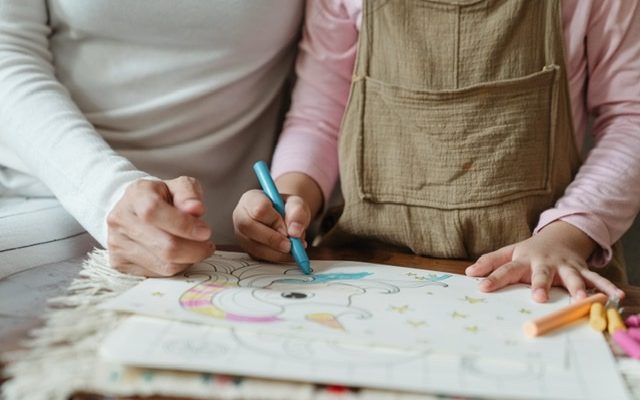
Mind and Body
5 Simple Ways to Teach Mindfulness To Children
Mindfulness is the current buzz-word.
Commonly referred to a way of relaxing or meditating, but just what is it exactly?
What is Mindfulness?
Mindfulness teaches us to calm our thoughts and looks at negative emotions as a normal part of life; which we all experience from time to time. It does not try to remove these negative emotions, but is about us noticing them, accepting them and seeing them for what they are, just thoughts and not attaching ourselves to those thoughts.
Mindfulness teaches us to be in the present moment, to be in touch with how we are feeling, what we are doing and really notice our senses and surroundings.
Why we should teach our children mindfulness?
Teaching children about Mindfulness gives them the skills to be resilient, to build self -esteem and to manage their stress.
A mindful child learns to handle the challenges and set backs that they encounter in life, by seeing these challenges as well as being aware of what positive feelings and beautiful things are around them.
The earlier that a child is taught these skills, the more resilient and experienced the child becomes at practising Mindfulness throughout their life.
The mindful child will also remember information easier and the ability to focus and pay attention are also enhanced. Additionally, they will be able to regulate emotions and easily move from one task to another. This means that a child will improve their problem solving abilities, participation with others and have improved mental health and general wellbeing.
How to practise Mindfulness with children.
There are many mindfulness activities that you can do as a family to stay positive and connected.
These include:
Going for a walk together,
Listening to the sounds of nature (birds, leaves under your feet, your breathing),
Colouring in a picture slowly and carefully,
Eating and paying attention to the tastes and textures of the food in your mouth or
Doing a jigsaw puzzle and focusing on each piece.
Mindfulness can be challenging at first but with practice you will learn how to focus and be in the moment. If you find it hard to focus and your mind begins to wander, try to bring it back to the activity that you are doing.
There are so many amazing benefits to practicing mindfulness. Enjoy practising and finding out how mindfulness can have a positive, healthy impact on yours and your children’s life.
Comments
Michael is a licensed social worker, clinical counsellor, supervisor and educator and has a strong desire to help people and a lifelong interest in human behaviour. In Michael's spare time, he loves doting over his rescue puppies Cody and Knodel and growing carnivorous plants.
























0 comments